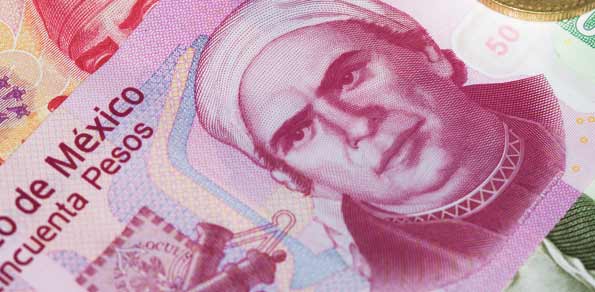Stocks have risen for a second day on Thursday as anticipation has grown that policymakers will finally take steps to support European banks under threat from the impact of a possible Greek default. German Chancellor Angela Merkel stated on Wednesday that Germany was ready to recapitalize its banks if needed, European finance ministers appear to be on the same page with measures to safeguard banks in the face of an imminent Greek default. However, Ms. Merkel states that Europe’s rescue fund will only be used as a last resort to save banks and that investors may have to take deeper losses (haircuts) as part of a Greek rescue package. Chancellor Merkel’s comments were her most explicit yet on the banks’ role in fighting the debt crisis since the spillover from Greece began to threaten France and Italy.
[quote]Time is running out. Troubled banks need to first seek capital on their own and national governments will help if that’s not possible. If a country cannot do it using its own resources and the stability of the euro as a whole is put at risk because the country has difficulties, then there’s the possibility of using the EFSF.[/quote]
If you’ve had a difficult trading period during the volatility experienced over the past two months and seen your account balance fall then spare a thought for Covepoint Capital Advisors LLC. The hedge fund fell 38 percent in September after their commitment that emerging-market currencies would gain against the U.S. dollar. The decline left the firm’s biggest fund with a loss of circa 25 percent for the year. The $824 million Covepoint Emerging Markets Macro fund had 84 percent of its assets in currencies, with a fifth of the portfolio invested in Mexico. The Mexican peso, Brazil’s real and the South African rand have plunged at least 14 percent versus the dollar since August on concerns that slow US and European growth will hurt export-reliant countries. Hedge funds focused singularly on emerging markets lost an industry average of 4.9 percent this year through to August, compared with the decline of 1.9 percent by the broader industry, according to Hedge Fund Research a Chicago-based research firm.
Covepoint oversees $1.1 billion, they predicted that the U.S. Federal Reserve would stimulate growth by initiating a third round of asset purchases – quantitative easing. They also predicted that efforts by China to make the yuan more widely available would erode the dollar’s value. However, emerging stocks have risen, due to marginal U.S. job growth and optimism that Europe will step up measures to contain its debt crisis.
The MSCI Emerging Markets Index climbed 2.2 percent to 854.56 as of 2:31 p.m. in Singapore, its biggest advance since Sept. 27. The Kospi Index in South Korea and Thailand’s SET rose more than 5.2 percent. The Hang Seng closed up 5.6 percent. The Nikkei closed up 1.66%. the UK FTSE is currently up circa 1.7%, the CAC is up 2.39% and the DAX is up 2.41%. The daily SPX index future is currently up circa 1.5%.
Whilst the focus will be on crises management the UK’s bank of England and Europe’s ECB will announce their interest rate decisions today. Whilst the expectations are for a unified hold on interest rates there is plenty of market chatter suggesting more rounds of asset purchase (quantitative easing) could be imminent. If not announced today then as a medium term coordinated plan, in order to help stem the haemorrhage, it’s simply a matter of when as opposed to if given the limited options available.
The economic data releases that could impact on the afternoon sessions include the following;
12:45 Eurozone – ECB Rate Announcement
13:30 US – Initial and Continuing Jobless Claims
A Bloomberg survey forecasts Initial Jobless Claims of 410K, compared with the previous figure released which was 391K. A similar survey predicts 3725K for continuing claims, compared with the previous figure of 3729K.





